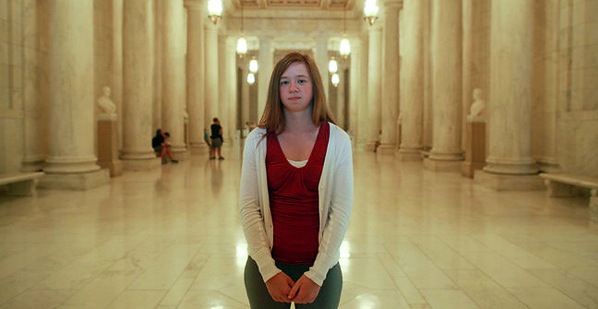Narratives of white victimhood are the rage these days.
From Abigail Fisher v. the University of Texas to the gutting of the Voting Rights Act, from Paula Deen’s claim of being a victim of the “PC police” to a material witness’s use of the phrase “creepy-ass cracker” in the criminal trial of George Zimmerman—there has been ample effort to imagine white people as the real victims in contemporary America.
| Only in America can inequality, voter suppression, and societal condemnation of racial slurs become a moment to lament white victimhood. |
David Sirota says “hysterical white people are all over the media screaming to whomever is listening that white people are under attack.”
Tim Wise notes this is in keeping with history. “The cult of white victimhood has long had its charter members,” he says. “Nowadays the cult has the attention of the media and a white public already anxious about changing demographics, the presence of a black president and economic insecurity.”
I call it WDD—”White Delusional Disorder.”
People suffering from WDD experience intense and wild distortions of and deviations from empirical reality. They believe white people are not benefiting from a racially stratified society. They are, instead, its true victims.
Last month, the U.S. Supreme Court ruled on a case weighing the affirmative-action policies of the University of Texas. The court punted by sending the case back to a lower court. But in doing so, it left unaddressed claims of Abigail Fisher’s victimization.
The plaintiff claimed: “There were people in my class with lower grades who weren’t in all the activities I was in, who were being accepted into UT, and the only other difference between us was the color of our skins. I was taught from the time I was a little girl that any kind of discrimination was wrong. And for an institution of higher learning to act this way makes no sense to me. What kind of example does it set for others?”
Yet court documents show that Fisher’s high school grades and SAT scores would not have qualified her for admittance to Texas’s flagship institution in Austin. Even so, she is a victim , she says. Meanwhile, the school admitted five students of color with lower scores as well as 42 white applicants whose scores were equal to or lower than Fisher’s.
Not surprisingly Fisher and her supporters have shown no concern for the 168 students of color who did not receive admission, though their scores were equal to or higher than hers. Nor have they expressed outrage at the number of students denied admittance though they presumably enrolled in costly SAT prep courses. Yet Justice Anthony Kennedy and the court’s conservative bloc failed to account for white privilege.
This was equally evident in the Supreme Court’s gutting of Sections 4 and 5 of the Voting Rights Act. During oral arguments last spring, Justice Antonin Scalia memorably described the VRA as a “perpetuation of racial entitlement.” Thus the Voting Rights Act victimizes white America. Despite claims of racial progress, and despite fantasies that the VRA is punishment for the sins of white grandfathers (it isn’t), the VRA was about protecting every person’s right to vote.
But this is the logic that governs the cult of white victimhood.
Only in America can inequality, voter suppression, and societal condemnation of racial slurs become a moment to lament white victimhood.
David J. Leonard is associate professor and chair in the Department of Critical Culture, Gender and Race Studies at Washington State University, Pullman. He is the author most recently of After Artest: Race and the Assault on Blackness (SUNY Press). Follow him @drdavidjleonard. (Image via)





0 Comments